第18章 ALOHA OE(2)
"Ka halia ko aloha kai hiki mai, Ke hone ae nei i ku'u manawa, O oe no kan aloha A loko e hana nei."Steve had taught her air and words and meaning--so she had thought, till this instant; and in this instant of the last finger clasp and warm contact of palms she divined for the first time the real meaning of the song. She scarcely saw him go, nor could she note him on the crowded gangway, for she was deep in a memory maze, living over the four weeks just past, rereading events in the light of revelation.
When the Senatorial party had landed, Steve had been one of the committee of entertainment. It was he who had given them their first exhibition of surf riding, out at Waikiki Beach, paddling his narrow board seaward until he became a disappearing speck, and then, suddenly reappearing, rising like a sea-god from out of the welter of spume and churning white--rising swiftly higher and higher, shoulders and chest and loins and limbs, until he stood poised on the smoking crest of a mighty, mile-long billow, his feet buried in the flying foam, hurling beach-ward with the speed of an express train and stepping calmly ashore at their astounded feet. That had been her first glimpse of Steve. He had been the youngest man on the committee, a youth, himself, of twenty. He had not entertained by speechmaking, nor had he shone decoratively at receptions. It was in the breakers at Waikiki, in the wild cattle drive on Manna Kea, and in the breaking yard of the Haleakala Ranch that he had performed his share of the entertaining.
She had not cared for the interminable statistics and eternal speechmaking of the other members of the committee. Neither had Steve. And it was with Steve that she had stolen away from the open-air feast at Hamakua, and from Abe Louisson, the coffee planter, who had talked coffee, coffee, nothing but coffee, for two mortal hours. It was then, as they rode among the tree ferns, that Steve had taught her the words of "Aloha Oe," the song that had been sung to the visiting Senators at every village, ranch, and plantation departure.
Steve and she had been much together from the first. He had been her playfellow. She had taken possession of him while her father had been occupied in taking possession of the statistics of the island territory. She was too gentle to tyrannize over her playfellow, yet she had ruled him abjectly, except when in canoe, or on horse or surf-board, at which times he had taken charge and she had rendered obedience. And now, with this last singing of the song, as the lines were cast off and the big transport began backing slowly out from the dock, she knew that Steve was something more to her than playfellow.
Five thousand voices were singing "Aloha Oe,"--"MY LOVE BE WITH YOUTILL WE MEET AGAIN,"--and in that first moment of known love she realized that she and Steve were being torn apart. When would they ever meet again? He had taught her those words himself. She remembered listening as he sang them over and over under the hau tree at Waikiki. Had it been prophecy? And she had admired his singing, had told him that he sang with such expression. She laughed aloud, hysterically, at the recollection. With such expression!--when he had been pouring his heart out in his voice.
She knew now, and it was too late. Why had he not spoken? Then she realized that girls of her age did not marry. But girls of her age did marry--in Hawaii--was her instant thought. Hawaii had ripened her--Hawaii, where flesh is golden and where all women are ripe and sun-kissed.
Vainly she scanned the packed multitude on the dock. What had become of him? She felt she could pay any price for one more glimpse of him, and she almost hoped that some mortal sickness would strike the lonely captain on the bridge and delay departure. For the first time in her life she looked at her father with a calculating eye, and as she did she noted with newborn fear the lines of will and determination. It would be terrible to oppose him. And what chance would she have in such a struggle? But why had Steve not spoken? Now it was too late. Why had he not spoken under the hau tree at Waikiki?